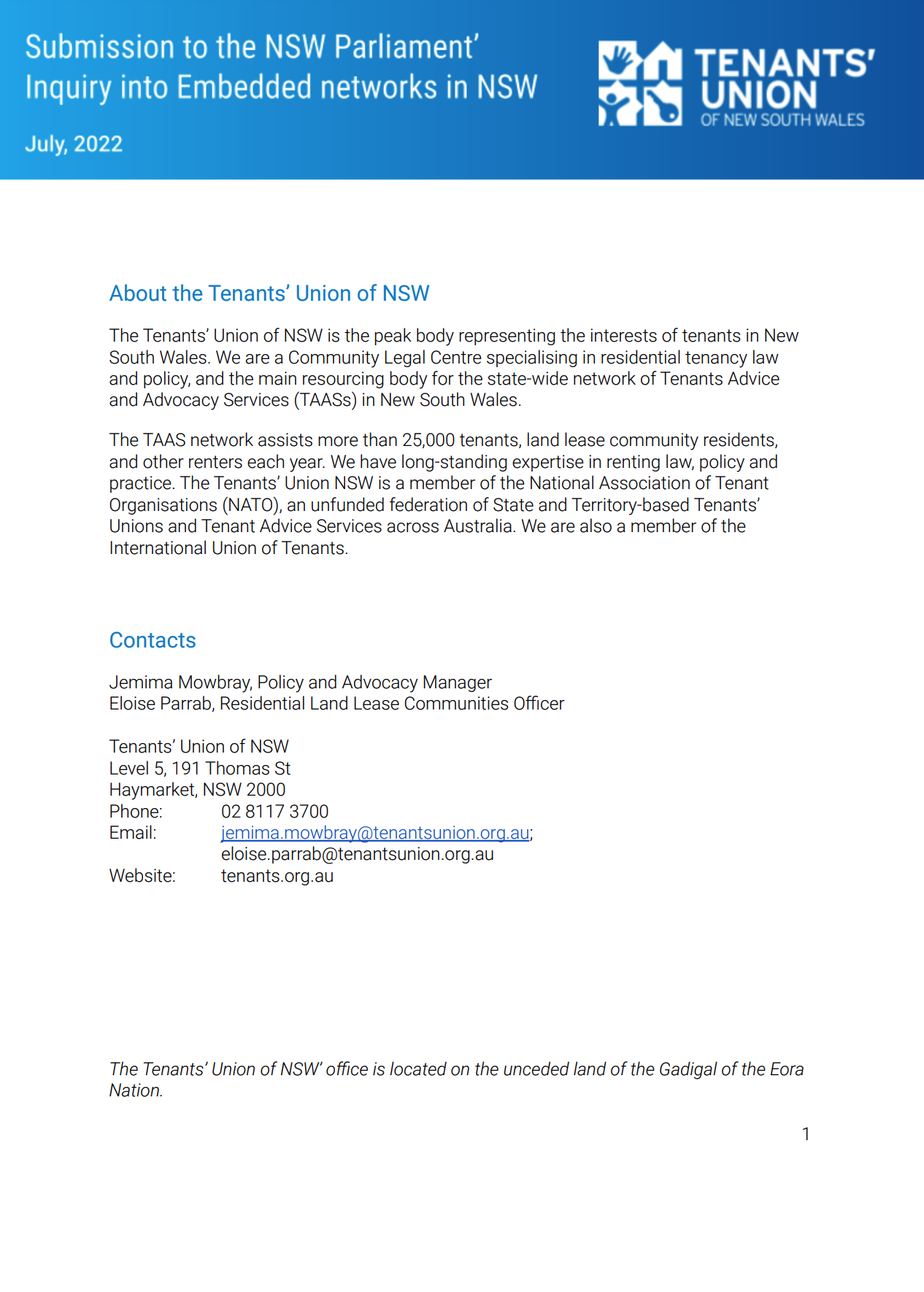Submission: Inquiry into Embedded Networks
01/07/2022
The Tenants’ Union of NSW welcomes the opportunity to provide a submission to the Committee on Law and Safety for their Inquiry on Embedded networks in NSW.
Despite a number of reviews of the regulatory arrangements for embedded networks, including by the Australian Energy Market Commission, the current regulatory system leaves embedded network consumers in a weaker position compared with consumers on standard supply contracts. They can find themselves locked into uncompetitive pricing arrangements, and generally have access to considerably less information and fewer protections.
In this submission we highlight the impact on renters who are required to sign up to an embedded network when they enter into their rental agreements, including tenancy and site agreements. This includes:
- renters in strata complexes with embedded networks for power and/or water supply
- residents of Residential Land Lease Communities (renters, and home owners who rent a site in the community).
We consider the structural disadvantage these residents and renters face in relation to:
- The need to improve outcomes for renters and residents in embedded networks
- Lack of disclosure
- Cost of energy: billing and price
- Infrastructure and supply
- Data
- Dispute resolution
- Hardship supports
We have also viewed the submission prepared by the Public Interest Advocacy Centre (PIAC). We support their submission, and in particular endorse their recommendations on the need to consider unwinding existing embedded networks and exempt selling arrangements to ensure equality of outcomes for all NSW residents, regardless of where they reside.
PIAC provides convincing evidence that current embedded networks and exempt selling arrangements are not framed around consumer outcomes but instead prioritise “the relative priorities and business structures of the provider of energy over the needs of consumers and their rights to equality of access to affordable and efficient supply, with equal access to supports and protections.”
The current seperate framework of provider obligations and consumer protections for embedded networks and retail exemptions has led to an inequality of service for many relying on embedded networks, leaving them, PIAC notes, “materially disadvantaged and more vulnerable.”
This accords with much of what we have seen in relation to outcomes for consumers in embedded networks, especially residents of Residential Land Lease Communities.
Our recommendations (to follow) should be considered as providing essential protections if unwinding does not take place. If unwinding does occur, our recommendations still work to provide a complementary safety net of protections for residents and renters in relation to access to energy and other essential services.


